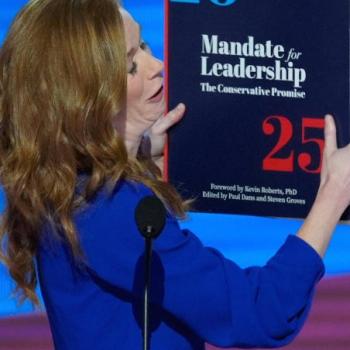I'm proud to report that our team at the Worthiness Bureau has completed the first step toward a more just world. Meritocratic utopia is now just around the corner. We have devised a new, perfect, authoritative metric for human worth: the Human Worthiness Algorithm.
Our formula is, of course, proprietary and thus must be kept as a closely guarded secret. But trust me, we've factored in everything and just because no one else is allowed to know the process doesn't mean anyone should be second-guessing the precision and objective, scientific accuracy of the HWA.
Every human being on earth, every so-called individual, can now be assigned a simple number — their HW score — from .001 to 1.000. (The formula originally assigned scores in whole numbers from 1 to 1,000, but we reconfigured this because, as you know, scores with lots of digits after a decimal point are always much more accurate.)
The data collection and calculation of this HW scoring involves quite a bit of work, but we're confident that we will still be able to turn a healthy profit once our three-stage business plan gets going.
Step One obviously involves getting our new metric as widely adopted and utilized as possible. This is an ambitious undertaking, but it will be easier than one might at first think when you consider the benefits of efficient, thought-free decision-making the use of HW scoring will bring to our future clients. Think of all the different decisions and interactions that can be streamlined and given a newly fortified level of quantitative confidence through HW scoring.
You wouldn't want to hire a person who was unworthy, would you? Or extend credit to someone unworthy? Would you want to carpool with someone of questionable worthiness, or bid on their eBay auctions, or buy Girl Scout cookies from their daughter? Of course not. Nor would you want to date or, God forbid, marry such a person.
Human Worthiness scoring, we predict, will soon come to dominate all such decisions and many more. Such decisions and interactions are now governed by the fuzzy subjectivity of judgment, qualitative perception and mutual respect. All of those error-prone mechanisms can now be replaced with three-digits-after-the-decimal precision.
Consider for example the vague variables now commonly used when reviewing a job applicant: résumés, work history, letters of recommendation. Such things may have a quaint, rustic charm — letters of recommendation seem almost Victorian, don't they? — but like many such antiquated systems, they are unreliable. The use of HW scoring will make them all obsolete.
Employers and lenders and businesses of every sort will be willing to pay for the certainty and efficiency that HW scoring can provide, but we at the Worthiness Bureau intend to charge only a nominal fee for this service. Our primary goal here is market saturation — market omnipresence. Our main revenue streams come later in the process.
The big money here is in enforcement and protection. As valuable as the certainty and efficiency of HW scoring is for decision-making, it becomes even more valuable as a means of enforcing compliance.
Say you're a credit-card bank and one of your borrowers has recently lost her job, running up her balance and missing her monthly minimum payments. You can threaten her with late fees and harassing phone calls, but that will only get you so far. She's still likely to think of things like rent and food as higher priorities than paying you on time. To really get her attention, you'll need to be able to threaten her with something that can make paying you more of a priority than keeping a roof over her head or feeding her kids.
And that's where HW scoring really proves useful. By threatening to report them to the Worthiness Bureau — threatening to damage the very measure of their worth as a human being — you can ensure that you will continue to collect no matter what misfortunes befall your debtors or their families. Such a threat would be so effective, in fact, that it might even open up a whole new line of business for your credit-card bank — enabling you to lend to and collect payment from a whole universe of borrowers whom you might otherwise have regarded as too risky.
But unlike the primitive "credit scoring" developed in the late 20th century, HW scoring can also be used to influence almost any behavior in any area that might need to be incentivized. That indolent neighbor whose shaggy front lawn is the disgrace of the block? Let him know that if he doesn't get that cut, you'll be reporting him to the Worthiness Bureau. Then sit back and marvel at how quickly his lawn becomes as perfectly manicured as your own. (And if he doesn't cut it? Report that to the Bureau. It will be reflected in the reduction of his HW score, as it should be, because others have a right to know that he is less worthy.)
And so on. Through a million decentralized decisions the power of a perfect metric will create a perfect meritocracy. By harnessing the power of neighbors threatening neighbors, worthy behaviors will be rewarded and unworthy behaviors will be punished and, thereby, encouraged to become worthier.
Paradise? Utopia? New Jerusalem? Perhaps. But the cash payment from our Nobel Prize isn't the final revenue stream we project for the Worthiness Bureau. The final, most lucrative and steadiest source of revenue comes, paradoxically, from our system's main flaw.
The formula is, itself, flawless. Its calculations are proprietary and thus, regrettably, top secret, but rest assured that they are inerrant when based on proper and accurate data.
Yet there remains the possibility of human error — typos, transposed digits in a Social Security Number or confusion between two scorees with similar sounding names, for example. Or, more darkly, there's the possibility of deliberate abuse and manipulation. What if that lazy neighbor retaliates by falsely reporting to the Worthiness Bureau that your lawn is less than perfect? Such errors or fraudulent reports could reduce your HW score, and even such relatively minor downward adjustments can begin to snowball as they make your life more expensive and difficult. Soon you could find yourself unwittingly grouped with the deservedly unworthy and thus denied access to credit, employment and polite society.
Clearly some safeguard is needed to ensure that such a miscarriage of justice does not occur. And just as clearly, the responsibility to guard against such errors by the Bureau lies outside the Bureau. Every individual scoree, obviously, will have to take responsibility for vigilantly monitoring their HW score to ensure its accuracy.
And for a small monthly fee, the Bureau will be glad to provide everyone with the tools to do just that.
For just $20 a month, the Worthiness Bureau will keep you informed of your up-to-the-minute HW score, allowing you to track all HW reports that may have resulted in reductions and thus providing you with the opportunity — for a very reasonable price — to file a challenge against any reports you believe are erroneous.
I've heard some grumbling about the cost here, but $240 a year doesn't seem an unreasonable price to pay for ensuring that your worthiness as a human being is quantified accurately.
And it's a small price indeed for the privilege of living in a perfect meritocracy, a glorious paradise where the Worthiness Bureau — an unelected agency immune to the whims of voters and the corrupting influence of lobbyists — is permitted to ensure that objective metrics, not subjective judgments, govern every aspect of everyone's life.
















